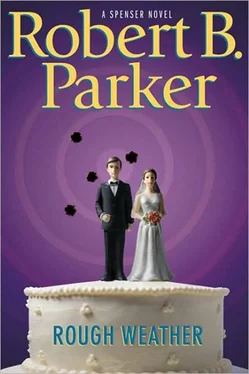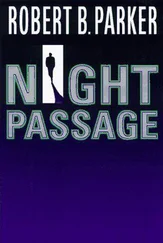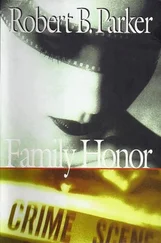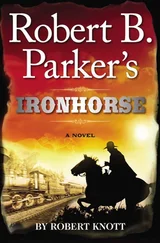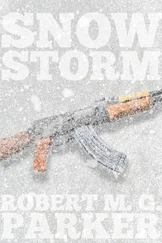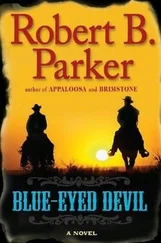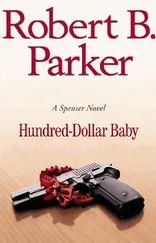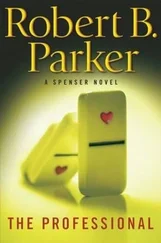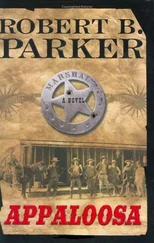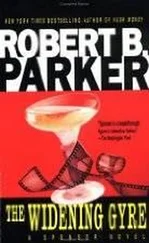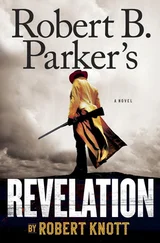Hawk and I met Ives at the bar in the Seaport Hotel on a Friday night. The hotel was an easy walk from the federal court-house, where Ives had a desk. He was sandy-haired and tweedy, with a blue oxford shirt and a rep-stripe tie.
“Ah, Lochinvar,” Ives said, “and his raptor friend.”
“How about the end of the bar,” I said.
We sat on the first three bar stools, Ives between me and Hawk. “I assume you are seeking information,” Ives said, “to which you have no legal right, and for which you have no clearance.”
“Exactly,” I said.
“And you are planning to pay for the drinks.”
“I am,” I said.
Ives smiled and ordered Johnnie Walker Blue on the rocks. I had the same thing with soda. Hawk ordered champagne.
“We don’t sell Krug by the glass, sir,” the bartender said. “I can give you a list of what we do serve.”
“I’ll have a bottle,” Hawk said.
“I assume you wish to discuss our mutual friend the Gray Man,” Ives said.
“You know what I’m involved in?”
“Tashtego,” Ives said.
“Pretty good,” I said.
“I’m a listener,” Ives said. “It is my profession.”
“He still working with you guys?”
“Mr. Gray has joined the private sector.”
“No more money from his uncle?” I said.
“Not to my knowledge.”
“So who pays him now?” I said.
“I don’t know,” Ives said.
“Can you find out?” I said.
Ives smiled and sipped some scotch.
“Probably,” he said.
“Have any idea what he’s been doing recently?”
“Other than Tashtego? No.”
“Can you find that out?” I said.
“Probably,” he said.
Hawk was silently drinking champagne, alert to every movement of a young woman in a tight black dress at the end of the bar. You could never be sure where danger lay. I had typed up a list of salient people in the Tashtego affair. I took the list from my inside pocket and placed it in front of Ives on the bar.
“Recognize any of the names?” I said.
Ives took some glasses from his breast pocket and studied the list.
“There are several names anyone would know,” he said after a time. “Reubens, for instance. Everyone who loves music knows who he is. The Lessards are prominent residents of the Main Line. Of course, Peter Van Meer right here in Boston. Great wealth.”
“You know what I’m after,” I said. “Anyone who had a connection to Tashtego and would have the wherewithal to hire Rugar.”
“Bradshaw,” Ives said.
“What about him?”
“Government employee,” Ives said.
“Information adviser, I’m told.”
Ives smiled.
“Aren’t we all,” he said.
“He with you guys?”
Ives didn’t answer.
“What can you tell me about him?” I said.
“Nothing,” Ives said.
“If you were me,” I said, “would you look into him?”
“Yes,” Ives said.
“Anyplace you’d start?”
Ives shrugged. He finished his scotch, put the glass on the bar, and stood.
“That’s it?” I said. “That’s what I get for buying you Johnnie Walker Blue?”
“It’s a lot for one shot of scotch,” Ives said.
“Do you know how much the stuff costs?” I said.
Ives shrugged slightly and walked out of the bar.
Still looking at the woman in the black dress, Hawk said, “Bradshaw.”
“You were listening.”
“Sort of,” Hawk said. “Babe in the black dress might be a security risk.”
“You think we should frisk her?”
“We? I was thinking I frisk her while you fight the boyfriend.”
I looked down the bar. The woman in the black dress was sitting with an outsized young man jammed into an expensive suit, who looked, by himself, like an offensive line.
“Good deal for me,” I said.
“I could fight the boyfriend and you could frisk her,” Hawk said. “But what’s she get out of that?”
“Her loss,” I said.
Hawk nodded.
“What you gonna do ’bout Bradshaw?” he said.
“I think I’ll look into him,” I said.
“’Stead of fighting the boyfriend?”
“Yeah.”
Hawk shook his head sadly.
“All work and no play…” he said.
We were walking up the mall in the center of Commonwealth Ave toward Kenmore.
“You see them?” Hawk said.
“Black Caddie?” I said. “Double-parked just past Dartmouth Street. Outbound side?”
“And?” Hawk said.
“Gray Ford double-parked just this side of Exeter, in-bound side?”
“Whaddya think,” Hawk said.
“Could be nothing,” I said.
“Or it could be something,” Hawk said.
“We probably need to decide,” I said, “before we get between them.”
“Be my guess,” Hawk said.
The cross streets were alphabetical: Arlington, Berkeley, and so on. We were at the corner of Clarendon.
“If they don’t plan to shoot us, we look foolish taking evasive action.”
“True,” Hawk said.
“But,” I said. “Say they do want to shoot us.”
“We don’t want to encourage that,” Hawk said.
“You know my motto,” I said. “Better to take needless evasive action, at the risk of looking foolish, than not to, and look dead.”
“That your motto?”
“I’m having it printed on my business cards,” I said.
“We can turn the wrong way onto Dartmouth, and probably shake them in the alleys,” Hawk said.
“But then we won’t know who they were,” I said. “Or if they were anybody.”
“If they anybody, we know where they come from,” Hawk said.
We had stopped walking and sat on a bench in the mall like a couple of tourists resting their feet. Neither of the cars moved.
“If they’re Rugar,” I said. “They won’t care about you. They’ll be after me.”
“You right,” Hawk said. “Maybe I just mosey on home.”
“Maybe you just mosey on up Clarendon to the alley, and you run lickety-split up the alley and back down Exeter.”
“Lickety-split,” Hawk said.
“And I’ll stroll languidly along toward Dartmouth, and if we time it right…”
“We’ll time it right,” Hawk said.
I nodded.
“We can end up with you behind the Exeter Street guys on that side. And I’m behind the Dartmouth Street guys on this side.”
“They expecting to catch us between them,” Hawk said, “and we catching them between us.”
“Rugar won’t be one of them,” I said. “Even if he sent them.”
“Why not?”
“He would do it alone,” I said.
Hawk nodded.
“One question,” Hawk said. “We get them surrounded, then what?”
“Then we’ll see,” I said.
“You just a planning fool,” Hawk said.
We crossed Clarendon Street and paused, as if we were looking at the kids playing in the small park. Then for the benefit of the guys in the cars, Hawk shook hands with me. He turned up Clarendon toward Newbury Street. I gave him a little wave. As he passed the public alley halfway to Newbury, out of sight from either car, he turned down. I turned right and left the mall to walk along the sidewalk, past the little park, on the river side of Commonwealth. I tilted my head as if I were listening, and then took out my cell phone and stopped and flipped it open and pretended to answer it.
“‘’Twas brillig,’” I said into the dead phone, “‘And the slithy toves…’” I nodded. “‘Did gyre and gimble in the wabe…’” I nodded again and listened and nodded. “‘All mimsy,’” I said, “‘were the borogroves.’”
Then I closed the phone and put it back in my pocket. Hawk was quick. He should be about at Exeter Street by now. I began to saunter along toward the Ford. I could feel the weight of my Browning on my right hip. There were fourteen rounds in the magazine, and one in the chamber. On each side of Commonwealth there was a march of brick and brownstone town houses. Most had small yards with shrubs. Halfway up the block toward Dartmouth I paused, staring, as if I’d seen something on the front walk of a town house. I stepped in and crouched down for a closer look, and as I did so, shielded by a shrub, I took the Browning off my hip and cocked it. Then I stood, with the gun against my right thigh, concealed in the skirt of my topcoat, and continued toward Dartmouth. It was getting dark. But in the streetlight at the corner of Exeter, I saw Hawk appear. Just before I came up on the Ford, I could see two men get out of the Caddie a block up on the other side. My guys would wait until I passed. I could see the car windows were down. They might not get out. They might shoot me from the car. I was whistling “Midnight Sun” as I strolled along. Footloose in the Back Bay, looking for love and feeling groovy. As I got to the car, I took a fast shuffle sideways, and standing just behind the passenger window, I pointed my gun in the window and said, “Move and I’ll kill you.”
Читать дальше
